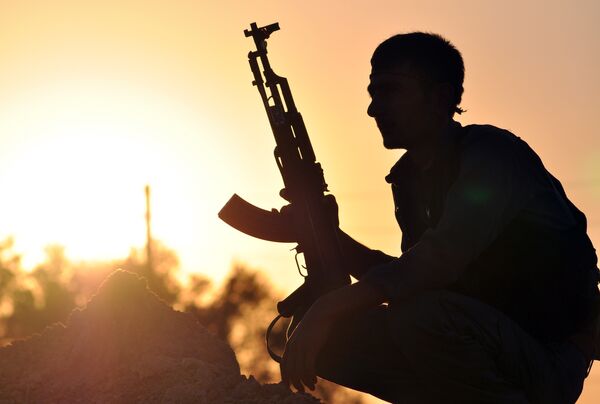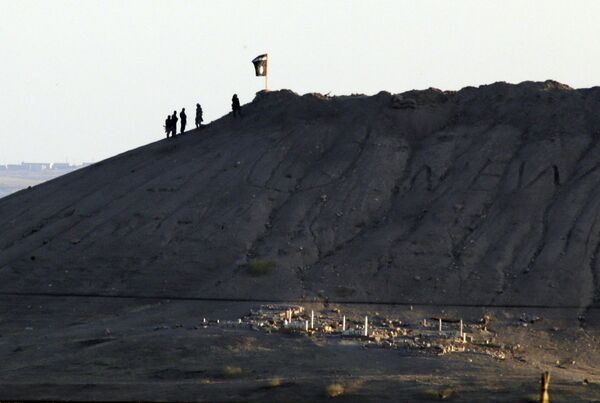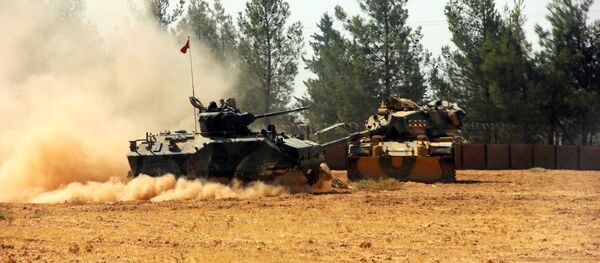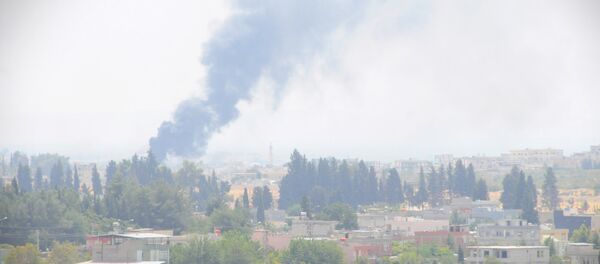"The Turks are saying that they are ostensibly bombing Daesh targets to keep this corridor. In reality they are conducting airstrikes against Syrian Kurds," he said. "This campaign is primarily aimed at retaining control over this stretch of border to provide assistance to anti-Assad groups, particularly in Aleppo."
The corridor that Ivanov mentioned stretches from Jarablus in the east to the Syrian city of Azaz in the west, located 32 kilometers (20 miles) north-northwest of Aleppo. The international community has long urged Turkish leadership to seal the area that radical groups, including Daesh and al-Nusra Front have used to resupply and rearm, but Ankara is apparently not interested.
"Turkey cannot allow this stretch of border to be sealed. Should this happen, the balance of power in Aleppo could shift in favor of Damascus-led forces and the Kurds, not the pro-Turkish groups. If the Kurds take this corridor under control, they will link their enclaves and create an autonomy" in northern Syria, the analyst explained.

Experts say that the outcome of the battle for Aleppo, Syria's second largest city, could well determine Syria's fate. The city is partially controlled by the Syrian Arab Army that recently cut off supply routes to rebel-held areas.
Obraztsov also mentioned that it is impossible to say which groups are moderate and which are not, but it is easy to name the one force that Turkey will never support.
"Turkey's operation is not primarily targeted against Daesh, but rather against the Kurds. Ankara reasonably assumes that if the Kurds combine their forces in northern Syria, the conflict will spill over to Turkish regions mainly populated by the Kurds," he said.
Gumer Isayev, head of St. Petersburg-based Center for Contemporary Middle Eastern Studies, shared these sentiments, telling RT that Erdogan views Syrian Kurds joining forces with their Turkish counterparts as a nightmare scenario.

The United States backed Turkey's operation in Jarablus despite the fact that US troops have relied heavily on the People's Protection Units (YPG) and Peshmerga in their anti-Daesh efforts in Iraq and Syria.
'Washington wants as many players to be dragged into the Syrian conflict as possible," because the US is not supporting a particular group embroiled in the fighting, he said. "In this context, the US is quite comfortable" with the current landscape.

Vladimir Avatkov, head of the Center for Eastern Studies, International Relations and Public Diplomacy, also told RT that Turkey is not merely interested in cleansing the border region of Daesh.
"Clearly, Turkish troops will provide assistance to certain influence groups. It has been common knowledge that Ankara wants to support 'moderate' armed groups in Syria. There is an entire layer of interests," he said.
Ivanov went further, saying that "radical Islamists" and Turkey cannot be enemies. "Erdogan will support them in their fight against Bashar al-Assad until the end," he added.




